THE SFA THEORY OF CHANGE
The SFA’s Theory of Change is the articulation of our organisation’s vision of how we will bring about our desired long-term outcomes and impacts. The development of our Theory of Change begins, at its core, with our vision for…
A responsible and inclusive global natural fibres sector that safeguards the health & well-being of people, animals and the environment.
At the heart of our approach lies the “One Health” concept – an integrated, unifying approach that aims to sustainably balance and optimise the health of people, animals and ecosystems. With this core value in mind, our Theory of Change was created by working backwards to identify three strategic pillars. These are:
Policy, Standards & Compliance
Training & Capacity Building
Collaboration & Convening
This Theory of Change aims to help the SFA identify and prioritise activities and partnerships and serves as a basis for us to align and monitor our progress, which will be key in actualising our outcomes and values. It presents a comprehensive and forward-looking approach that emphasises standards and certification while also prioritising collaboration with markets and stakeholders. This underscores our commitment to achieving our vision. View the SFA’s Theory of Change below:
OUR IMPACT
At the SFA, we use the phrase Our Impact to refer to the holistic, long-term outcomes and impact areas – both intended and unintended – that arise from the implementation of our standards system and work programmes across different dimensions, such as herder’s livelihoods, decent work, environment, animal welfare and collaboration and convening.
SFA's 2023 Key Impacts:
21,585 Herders & Farmers are certified under the SFA Standards System.
Across 17 provinces in Mongolia & 7 regions in China.
6,454 tonnes of raw cashmere fibre was certified by the SFA.
We have over 60 members from 13 countries across the globe.
IMPACT MEASUREMENT
We measure the impact of our work against four main impact areas:
Protection of Natural Resources
Positive Welfare State for Livestock
Resilient Herding Communities
Collaborative Market & Stakeholders
We adopt a diversified approach to measure our impact, which includes using standards and assurance data, gathering field-level insights through herder surveys and field visits, and validating our impact through independent consultants and researchers.
To do this effectively and efficiently, we ensure that Monitoring & Evaluation (M&E) practices are integrated into the organisation’s culture, systems, and processes.
MONITORING, EVALUATION & LEARNING FRAMEWORK
The SFA has developed a Monitoring, Evaluation and Learning (MEL) framework that aims to provide a structured approach to collecting crucial data, assessing effectiveness toward impact goals, and monitoring levers of change, ensuring that the SFA’s activities are both effective and credible. Through continuous monitoring, the SFA can track progress against its Key Performance Indicators (KPIs), which are derived from the SFA Animal Fibre Standard, SFA Clean Fibre Processing Standard, SFA Chain of Custody Standard, Assurance programme, and overall partnership and collaboration.
It also showcases how the organisation will measure the change or impact in line with our Theory of Change (ToC). This, in turn, provides a clear structure and plan for data collection, analysis and reporting, the types of evaluations to be conducted and their timescales and improving the standard based on MEL input and planning of resources for conducting MEL-related activities.
BEYOND A STANDARD: OUR IMPACT AREAS
The SFA is more than a standard holding body. Through training, workshops and partnerships, we promote collective action to encourage responsible practices and build the resilience of cashmere herders for future change.
With the support of our members, we coordinate a variety of projects to benefit cashmere herders. These projects include fibre sorting and breeding initiatives, conservation of local wildlife, educational opportunities for youth, and sustainability awards for exemplary herders. We also collaborate with a major national bank to provide low-interest loans to herders that meet the requirements of the SFA Animal Fibre Standard.
We work continuously at national and international levels to form strategic partnerships and bring about sector-wide transformation for cashmere.
Expand the headers below to learn more about each of our key impact areas.
The Protection of Natural Resources impact area focuses on understanding the value of natural resources and how to protect them through practices such as managing grazing in a way that maintains the health of the soil, prevents degradation of pasture, and minimises conflict with wildlife. Other criteria address the conservation and enhancement of biodiversity and natural habitats, including non-lethal predator control, the management of water resources and the elimination of hazardous materials.
All these elements are addressed through a Rangeland Management Plan that supports traditional herding practices, maintains herd sizes within the carrying capacity of the rangeland, is integrated with local administrative land use planning and includes monitoring and evaluation frameworks.
Producers must understand the importance of natural resources, how their activities affect soil health, water and biodiversity, and the activities they can undertake to conserve and improve natural resources in their rangelands.
This impact area is based on a holistic approach that not only safeguards the rangeland ecosystems but also leads to broader, positive long-term outcomes such as reduced greenhouse gas emissions, increased water efficiency, enhanced wildlife populations, and increased carbon sequestration. Learn more about the SFA’s environmental work here.
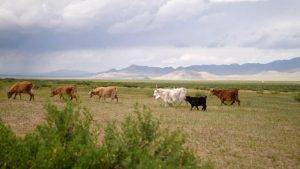
Maintaining a healthy livestock herd is crucial to a fibre producer’s way of life and future prosperity. Through the SFA’s training and certification programme, we draw on traditional knowledge and scientific evidence to promote internationally recognised best practices to help ensure the health and well-being of livestock.
The SFA Animal Fibre Standard has moved away from the Five Freedoms model of animal welfare and is now based on the Five Domains model. This is to ensure that our standard encourages positive experiences and emotional states for goats, as well as minimising suffering and discomfort.
The Positive Welfare State for Livestock involves considerations such as access to adequate nutrition, proper housing and shelter, humane handling, veterinary care, freedom of movement, freedom to express natural behaviour and positive relationships with people.
The SFA recognises the importance of minimising stress and ensuring that animals experience positive mental states. These are important elements that influence an animal’s overall welfare and contribute to positive long-term outcomes, including improved living environments, better physical health and ethical transport. Learn more about the SFA’s animal welfare work here.
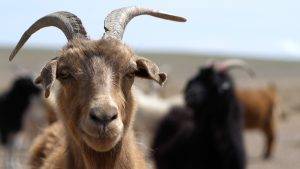
The SFA works with herders and farmers as well as herding groups known as ‘herding organisations’. The Resilient Herding Communities impact area focuses on supporting the community through effective governance and participatory planning, ultimately aiming to enhance the livelihoods of multiple herding families in communal grazing areas.
The SFA’s initiatives involve working closely with herders to elevate pasture conditions and ensure optimal animal health. Rangeland management and wildlife conservation training are provided to equip herders with valuable skills. The SFA facilitates improved market access and access to preferential bank loans for participating herders, fostering economic sustainability. Noteworthy contributions to sustainable production practices are acknowledged through annual sustainability awards. Additionally, the SFA runs educational programmes for young herders and school-leavers, reinforcing a comprehensive approach that addresses both environmental and socio-economic aspects of natural fibre production.
This comprehensive strategy improves the resilience of herding communities by creating opportunities for decent livelihoods and improved human well-being, while also establishing financial security for herders. Learn more about the SFA’s work to support herder livelihoods here.
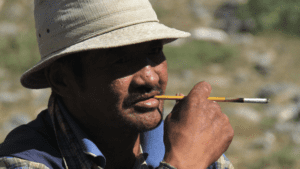
Women Empowerment
A recent study on decent work in Mongolia (May 2023) centered around a series of workshops with 36 women attending, during which SFA gained gained valuable insights into the roles of women herders. The study discussed the common challenge many women in pastoral communities face globally – balancing the pressures of caring for family, livestock and their environment amidst the devastating effects of climate change. This has provided the SFA with information to better integrate gender and decent work into their strategy plans and standard systems.
The SFA also seeks to work in some of the most challenging contexts where women’s empowerment has acquired even greater salience on the global stage. In autumn 2023, the SFA began training efforts in Afghanistan to bring better social, environmental, and animal welfare to 5,000 Afghan farmers, of which 30% were female herders. Bringing capacity building to over 1,500 women pastoralists in Afghanistan highlighted the crucial roles of these women in supporting their families’ livelihoods. With so many widowed after decades of conflict, these female-headed houses are vulnerable to the continued social and economic instability of the region.
As a membership-based not-for-profit organisation, the SFA is fortunate to draw on members and participants to facilitate research and projects. J.Crew supported a multiyear project (2020-2021) on women empowerment, which has been foundational for developing the SFA’s remit for gender-transformative research. Together with members and and project partners, the SFA has developed pioneering pathways in multistakeholder research and action. With their focus set to remain on empowering women herders and the next generation, they are shifting to include the increasing need for climate risk resilience within herding communities following the devastation caused by the effects of Dzud or harsh winter conditions.
The Collaborative Market & Stakeholders impact area is not only defined by responsible sourcing but also by a commitment to collaborating and convening with key stakeholders. It revolves around creating a market preference for SFA-certified fibre encouraging supply chains to support eh SFA’s certification programme and rewarding herding communities who are shifting to sustainable production practices.
This impact area summarises the promotion of SFA-certified fibre, encouragement of responsible sourcing within supply chains, increased awareness and engagement in the natural fibre sector, advocacy for enabling policies and strengthening the networks of local institutions.
Learn more about how to get involved with the SFA’s work and programmes here.
SFA & THE SDGS
The United Nations Sustainable Development Goals (SDGs) are a call for action for communities and people everywhere to promote prosperity while protecting the planet. They are broad, holistic and interconnected, designed to help balance the often-competing objectives of economic development, poverty reduction and sustainable resource use. Collectively, they provide a framework to direct the agendas and policy development of member states over the next 15 years.
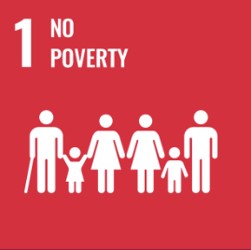

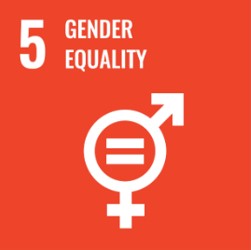
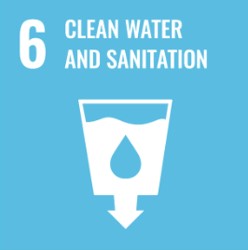
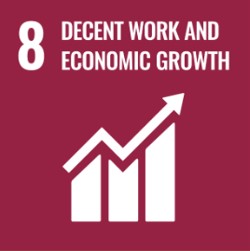
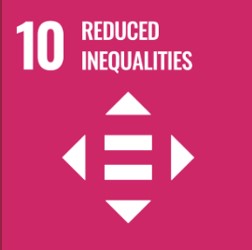

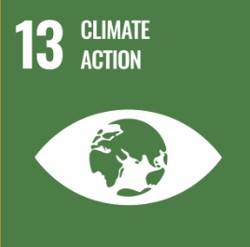
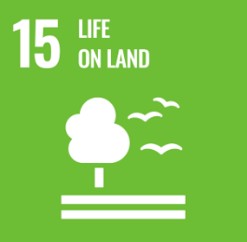

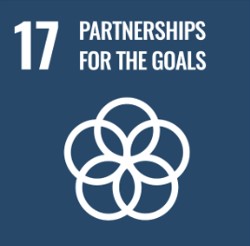
Out of a total of 17, the SFA’s strategy aligns with 11 of these SDGs. Find out more about the SFA and the SDGs here.
